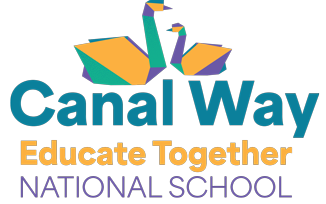PAC annually hosts a session on transitioning to Secondary School for parents of children in 4th, 5th & 6th class. The session is split in two as follows:
1: Transition to post-primary, with National Parents’ Council (NPC)
2: Moving on from Canal Way, with parents of past pupils
The following content is a summary from the evening:
–
1. National Parents Council Advice
Advice for the first few months in secondary school (NPC)
- Timetable – kids need to be organised and able to figure out where they’re going in the school. Need to hang their timetable up in the kitchen AND where they’ll be doing their homework so they know what needs to be done. Also keep track of what’s needed: sports kit, art materials etc.
- Homework – set it up from the beginning: when does it happen, where, for how long? You know your child, you know what suits them best. Try to be positive about homework: take an interest in the subjects they’re studying.
- Long school day: may need to get up earlier, likely to be tired when they come back from school.
- School information: Don’t rely on your child to give you information: Look at your child’s journal at least once a week. Get to know the layout of the school (where are the science labs, the hockey pitch?), the names of teachers and how to contact them.
- Support services: Who is available in the school if your child needs support: pastoral care/ counsellor etc? Familiarise yourself with these supports and don’t be slow to use them.
- Parent teacher meetings: These are very different to primary school: You might see up to 15 teachers. They generally happen in the 1st term, so the teachers won’t know your child especially well. They might be in the PE hall, with lots of desks and they can be chaotic/ stressful. It’s a good idea to familiarise yourself with the names and subjects of each teacher, and to give your child accurate feedback.
- An educational passport is something handed over from year to year starting at the end of 6th class. Each passport includes My profile (child); My child’s profile (parent) and 6th class report card (teacher). This is an opportunity to note your child’s learning style, strengths, challenges etc.
- Kids with Special Educational Needs The educational passport is a good opportunity to ensure that this is clearly captured and addressed. As ever, parents need to be able to advocate for their SEN child so find out who can help before problems arise.
Parenting advice that can help:
- Start early giving your child responsibility for belongings and organisation: making lunches, planning sport activities etc. Teach your child the skills to do things for themselves. Don’t do everything for them.
- Parents always worry about their child making new friends. Some friends from primary may be there – but maybe not in the same subjects. Show an interest in the new friends your child is making (even if you don’t like them). Friendships take time to develop.
- Anxiety. Allow your child to feel anxiety, acknowledge it, give it space. Put your anxiety aside in front of your children – talk to other parents about how we’re feeling, try not to transfer our anxiety to our children.
- Seek a balance of activities in your child’s life (extra-curricular, sports, etc): exercise; social activities; entertainment etc.
- Try to make dedicated time for your child (go for walks, watch tv together) – and space for them to open up if and when they need it.
- Be aware of other changes going on for your child at this time – puberty, social, child’s thinking – behaviour of child may be different (more grumpy) but it will pass
2. Moving on from Canal Way
Several parents spoke about their experiences of moving on from Canal Way, going to different schools, as summarised on the website. The 5 schools represented at the talk were all non-fee-paying. Each parent introduced their particular experience, and then there was an open question and answer session. The main themes that arose are summarised below:
Factors that influenced the choice of secondary school:
- Length of commute, and can your child do it independently? Parents highlighted importance to having tested commuting routes to have options.
- Where friends were going: of great importance to the kids themselves, but also to parents. However parents shared that kids that went to a school where they may not have known many kids made new friends quickly.
- Availability of additional supports: Parents outlined what school provided & if laptops/ipads were needed or if a Book rental scheme was in place. Free lunches, breakfast club, home/ school liaison, elective subjects & extracurricular choices were factors in choosing.
- Majority of schools do open days and parents encourage attending as it gives a flavour of school ethos & sports facilities etc.
- Schools help the kids adjust and there is an emphasis on managing the transition evident in all the schools.
- Homework was a big change for everybody: it varied from school to school, but always an increase, and it increases again in 2nd year. In some cases there was a lot of assessment/ testing, and related stress.
- Prepare kids for secondary by increasing independence
- Prepare kids for secondary by increasing independence – but don’t worry! They grow up a lot in the summer of 6th class. Allowing them to take public transport by themselves / go into town with friends etc is good.


